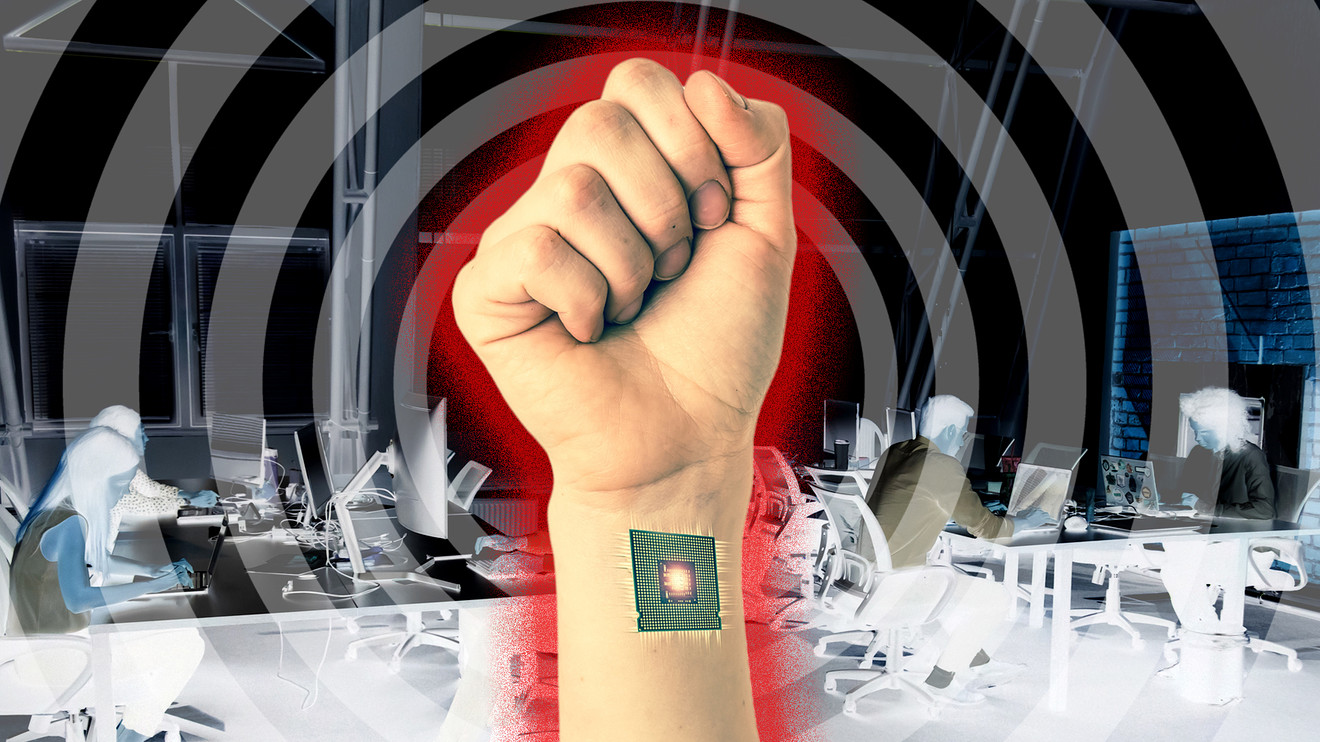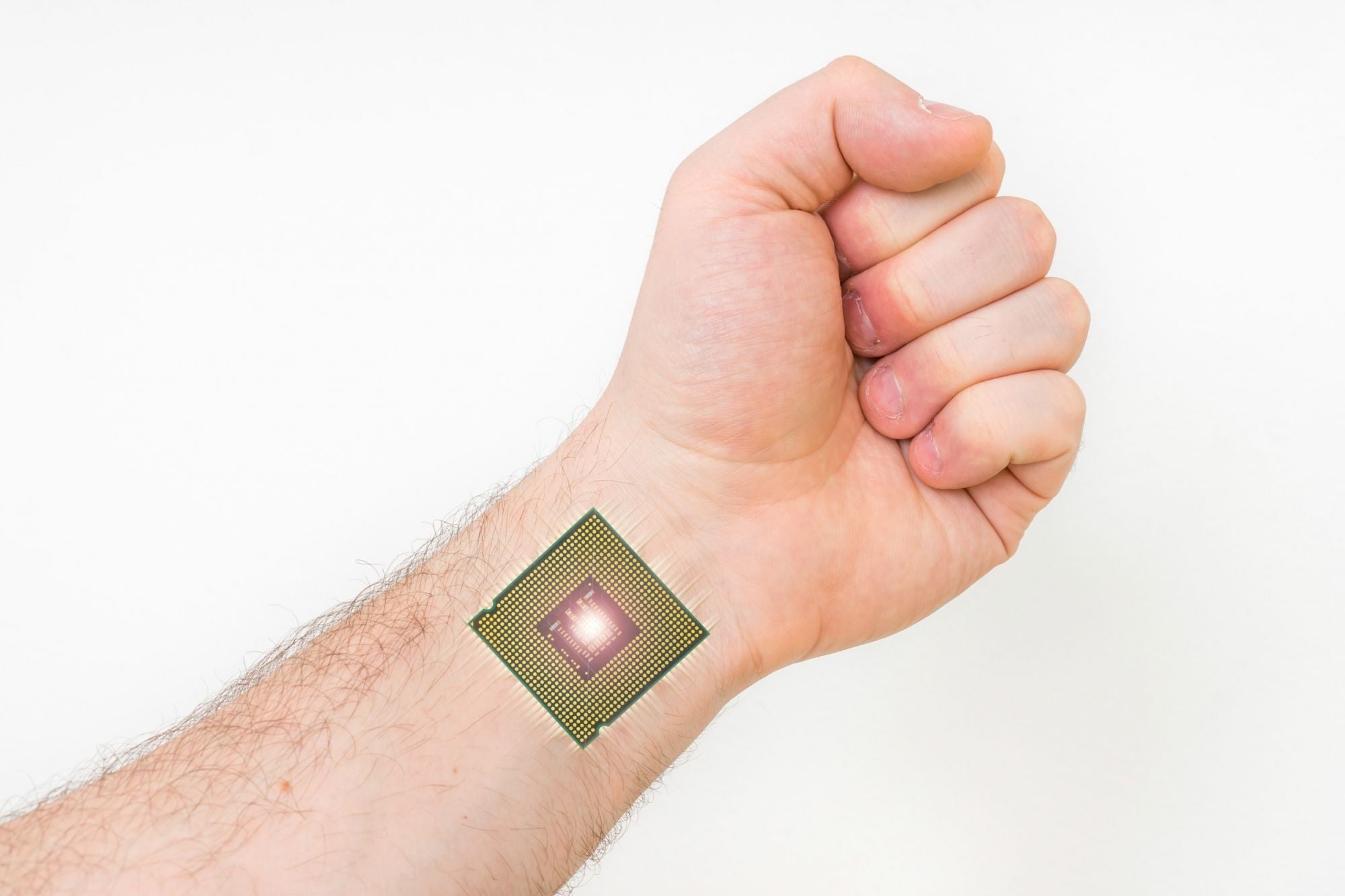Microchip implants: A technology that let you pay with your hand
Posted on Thursday, April 14, 2022
Author: Rading Biko
 An illustration of a Microchip implant. [courtesy]
An illustration of a Microchip implant. [courtesy]
There is a saying that goes ‘Money makes the world go round.’ But does money changes hands is quickly adapting to new technologies? For years, cash payments were the norm, with credit cards slowly taking over as the payment norm in the most recent few decades.
Now, there is a whole new wave of payment options that may sound futuristic but are on the verge of upending the financial system. In doing so, it will be easier than ever to pay for everything from a cup of coffee to a mortgage payment.
Technology is advancing every day, from smartphones, smartwatches and earbuds, and now under our skin! A human implant is injected into our skin through the Radio-Frequency Identification (RFID) process.
This type of subdermal implant usually contains a unique ID number that can be linked to information that contains an external database, personal identification, law enforcement, medical history, medications, allergies and contact information.
In developed countries, thousands have had microchips inserted into their hands. The chips are designed to speed up users’ daily routines and make their lives more convenient by accessing their homes, offices and gyms and even market stores.
Microchips can also be used to store emergency contact details, social media profiles or e-tickets for events and rail journeys. The chip-size of a grain of rice is inserted into the skin just above each user’s thumb using a syringe.
The chip touches your hand, your heart, your brain and the rest of your body parts. The development of this is set to give it the name ‘hacking the body’ or bio-hacking.
Patrick Paumen, a 37year old Dutch describes himself as a bio-hacker. He places his left hand near the contactless card reader and the payment goes through something that has surprised many especially when he is out shopping.
“The reactions I get from cashiers are priceless. There will always be people who don’t want to modify their body. We should respect that and they should respect us as bio-hackers,” he said.
According to the BBC report, Paumen has 32 implants including chips to open doors and embedded magnets and does not need a credit card or mobile phone to make payments.
Near Field Communication (NFC) is a type of technology that uses a contactless payment system like those in smartphones. Paumen is able to pay using his hand because back in 2019 he had a contactless payment microchip under his skin.
Other payment implants are based on RFID a similar technology typically found in physical contactless debit or credit cards . Implanting chips on humans has privacy and security implications that go well beyond cameras in public places, facial recognition, tracking of our locations, our driving habits, our spending histories, and even beyond ownership of your data, which poses great challenges for the acceptance of this technology.
Security and privacy concerns deal with a stolen identity, risks to human freedom and autonomy to mention a few. Like any new trend, in order for that trend to be accepted and become mainstream, it needs to overcome Technology, Business and society as Challenges.
However, scientists have raised concerns about the privacy around the health of a person that might be stored in the chips.
 An illustration of a Microchip implant. [courtesy]
An illustration of a Microchip implant. [courtesy]
Implanted chips also affect health but add new dimensions to the risks and threats of hacking sensors as they are considered a weak link in the IoT systems.
A limitation of using chips inside your body includes infection risks and the corrosion of chips’ parts. While cyber experts continue to worry about protecting critical infrastructure and mitigating security risks that could harm the economy or cause loss of life, and conflict with people’s religious beliefs.
According to a recent survey of employees in the United States and Europe, two-thirds of employees believe that in 2035, humans with chips implanted in their bodies will have an unfair advantage in the labour market.
Steven Northem senior lecturer in innovation and entrepreneur at the University of Winchester says that the concerns are unwarranted. In addition to his academic work, he is the founder of the UK firm Bio Teq which has been implanted, with contactless chips since 2017. Its implants are aimed at people with disabilities who can use chips to automatically open doors.
Technology is advancing every day and the chips are getting smaller and smarter, where they are considered the first elements of the typical Internet of Things (IoT) which consists of Sensors, Networks, clouds and Applications. There are many companies in the field and the opportunities are huge with all aspects of replacing ID stores, offices, airports, and hospitals just to mention a few.
Chips will provide key physical data and further processing of data in the cloud to deliver business insights for the industries in the public and private sectors.
This technology is promising and another step towards more convenience and simplifying many of the daily tasks of billions of people around the world but without solid security, safety and privacy measures applied when using this tiny chip, we will be facing a cybersecurity nightmare with far-reaching consequences.
Written by Cynthia Kenyani
comments